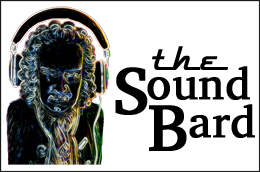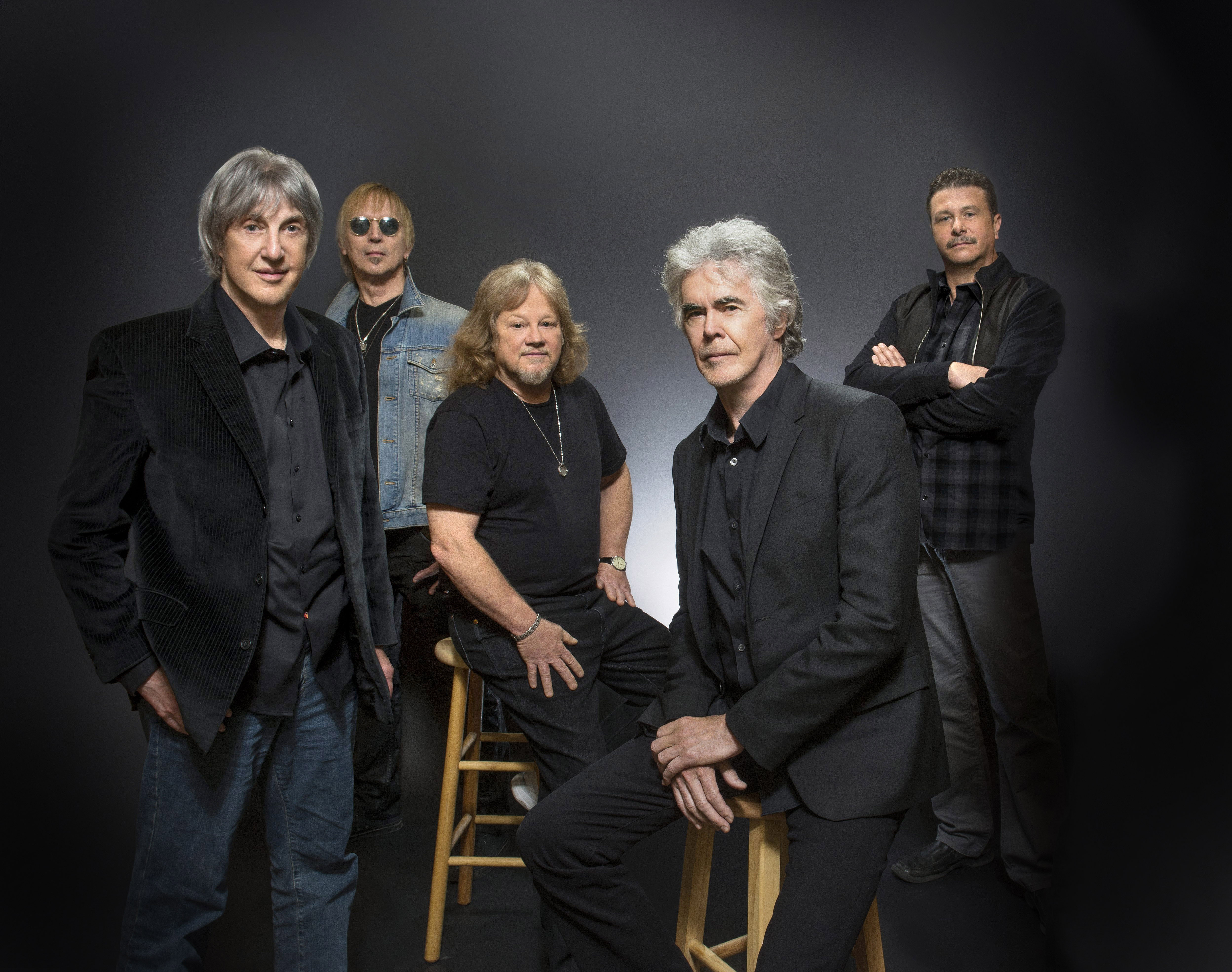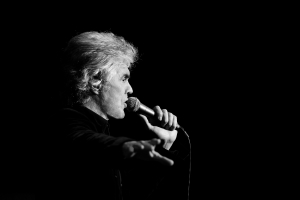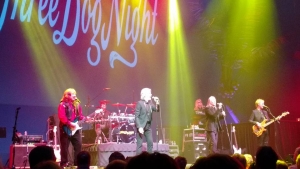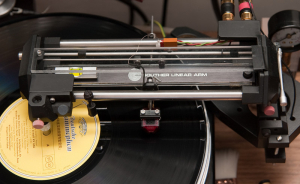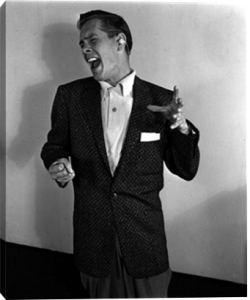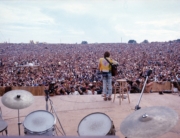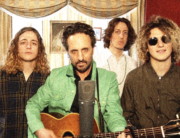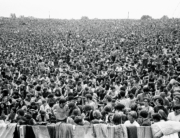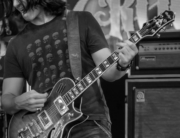BY MIKE METTLER — FEBRUARY 24, 2016
It takes a special breed to put down serious roots in Laurel Canyon, California — and that’s exactly what Three Dog Night vocalist Danny Hutton did more than four decades ago. “I bought my house from Alice Cooper in 1977 or ’78, and Micky Dolenz [of The Monkees] lived next door,” Hutton recalls. “Except for [legendary 90-year-old “Oldies But Goodies” DJ] Art Laboe, I may be the second-oldest guy in the business living here. [Hutton is 73.] There aren’t any houses around me and I’m on a hill, overlooking another hill with pine trees. It’s not like a West Coast thing, but more like I’m up in the forest! And I’m about 12 minutes from the Sunset Strip, so it’s the best of both worlds.”
Actually, Three Dog Night is a band that brings together the best of many worlds. They have one of those storied catalogs that just won’t quit, so you might be forgiven for forgetting how many of their songs you automatically know. A sampling of TDN’s 21 Top 40 hits includes the No. 1 singles “Joy to the World,” “Black and White,” and “Mama Told Me (Not to Come),” along with other instant-sing-along favorites like “One,” “Liar,” and “An Old Fashioned Love Song.” (See? Toldja you knew ’em all.)
When I recently saw the band play the Bergen PAC in Englewood, New Jersey on January 28, they were firing on all cylinders during their 17-songs-strong set, having dutifully weathered the recent passings of two of their founding members, keyboardist Jimmy Greenspoon (March 11, 2015) and vocalist Cory Wells (October 20, 2015). Personal highlights from that night included “Never Been to Spain,” “Shambala,” “Sure as I’m Sittin’ Here” (a great John Hiatt cover), and “Celebrate.” (Yep, you know all of those songs too…)
TDN is also reaching the next generation. “We have young people who will come up and say, ‘I don’t know Three Dog Night,’ and I’ll say back, ‘Yeah, yeah, you do.’ Hutton recounts with a chuckle. “And then I’ll just hum something and they’ll say, ‘Oh yeah, I know that! Is that you?’ It sure is!” (You can find all current TDN tour dates right here.)
I called Hutton while he was sitting outside his Laurel Canyon home enjoying a short touring break to discuss Three Dog Night’s unique approach to making albums, why singing harmony comes naturally to him, and his view of the band’s enduring legacy. No doubt it will all be joy to you and me.
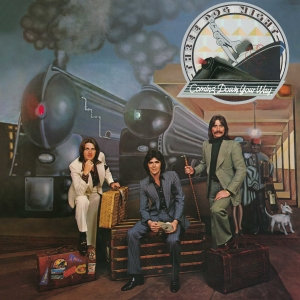 Mike Mettler: One thing that’s never easy to do is to “categorize” Three Dog Night music — not that we’d necessarily want to. At this point, I’d say the band name essentially defines your sound.
Mike Mettler: One thing that’s never easy to do is to “categorize” Three Dog Night music — not that we’d necessarily want to. At this point, I’d say the band name essentially defines your sound.
Danny Hutton: We were on every chart, from easy listening to pop, rock, R&B, country — we did everything. A lot of the critics didn’t get it, and they couldn’t put us in a bag of a certain type of music. We were not that kind of group.
Nowadays, many people cherry-pick all their songs. You look at what they play, and it’s all random everything. But that’s actually what we were doing on our albums.
Mettler: In a way, you were four decades ahead of everybody.
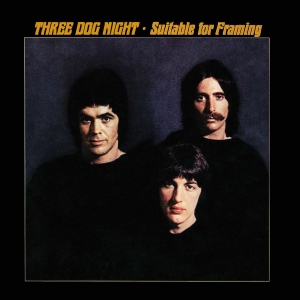 Hutton: Yeah, that’s how I look at it. (chuckles) We just sound so different on different songs. We’d have a funky song with Cory, and then Chuck [Negron, onetime TDN singer] would be doing a ballad, and I’d be doing a pop song — it was all different. And the musicians — Michael Allsup is one of the finest guitar players I know. I sit there and go, “Do B.B. King,” and he can do it.
Hutton: Yeah, that’s how I look at it. (chuckles) We just sound so different on different songs. We’d have a funky song with Cory, and then Chuck [Negron, onetime TDN singer] would be doing a ballad, and I’d be doing a pop song — it was all different. And the musicians — Michael Allsup is one of the finest guitar players I know. I sit there and go, “Do B.B. King,” and he can do it.
One time we were in New York, and I took Michael to see Les Paul. Les brought him up onstage, and he and Les were playing on one guitar! He had his arm around it and they were picking together, with Les doing the top end.
Mettler: That’s great. We went to see Les at the Iridium on Broadway, about 2 or 3 years before he died [in 2009].
Hutton: I knew his rhythm player, Lou Pallo, who drove him in from New Jersey for the weekly gigs, and he just told me all these funny stories about Les. He was a little bit of a curmudgeon: “Buy the gas on the Jersey side; it’s way cheaper!” (both laugh)
Mettler: Yeah, that sounds like Les! Three Dog Night always had its own ideas for how to sequence albums, wouldn’t you agree?
Hutton: Oh yeah. That whole concept of album tracks and the order of songs — I have to explain it to kids. If you had a date coming over, you’d want to have one whole side at least all slow, because you didn’t want to have to get up and change it. (chuckles)
My son Dash [Hutton, drummer for Haim], he loves vinyl. That’s all he listens to. I was just looking this up, since you’re a pretty big audio guy. My cousin Nancy’s husband was into all that. I’d go to their house outside of Boston, and he always had the biggest TV set in the world. He was ahead of his time. He invented the Souther linear tonearm. He later sold it to Clearaudio. [After that acquisition, the Souther became known as the Clearaudio Master TQ1.]
Mettler: Oh yeah? That’s a very cool vintage-’80s high-end tonearm. Let’s shift back to the Left Coast, and on into Laurel Canyon. There must be some good stories from those early days, with everybody communing and doing their own thing…
Hutton: Oh yeah! The party house was a little further down the Canyon in the crazy days, in the early ’70s. It was a little house, but I knew they knew how to throw parties when I got a knock on the door, and it was John Lennon and Ringo Starr. (chuckles) They said, “Can we come in?” And I said, “Uh, yeah, I think maybe that would be ok.” Party crashers! And they came with Harry Nilsson too.
Mettler: You and Harry were friends too, right?
Hutton: Yes. It was during The Lost Weekend, when Lennon was out “harassing” people. (both laugh) No, he was a real gentleman. And I knew Ringo from over in England. So that was a highlight over at my house. [The Lost Weekend was Lennon’s description of his 18-month relationship with May Pang in 1973-74, while he was separated from Yoko Ono.]
Mettler: I can see a throughline between the harmony style of what you do in Three Dog Night and what The Beatles did with theirs. Would you agree with that?
Hutton: Absolutely! When I was a solo act [for Hanna Barbera Records in 1965-66, before joining Three Dog Night], I always used to do three-part harmonies myself, with myself in the background, so I was always into harmonies.
You know, it’s funny — I was just reading your interview on SoundBard with Brian Wilson.
Mettler: Oh, thanks for checking that out. It was a real honor to speak with him, too. You two have also been longtime friends.
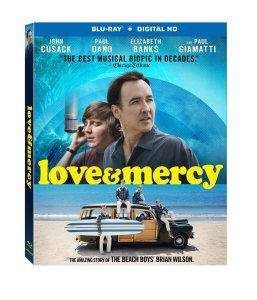 Hutton: He’s my bud. I love him. I was the best man at his wedding, both Carl [Wilson] and I. He’s a sweetheart. I went to see Love & Murphy (laughs), I mean Love & Mercy. It’s a good love story, you know? It’s Melinda’s story more than Brian’s. It’s a Beach Boys thing. It’s enjoyable — a real romantic thing with a happy ending. People tend to dwell on the sad, tortured-genius thing. It goes through all of the tough times, but it’s presented in a good way at the end. He doesn’t have a mean bone in his body.
Hutton: He’s my bud. I love him. I was the best man at his wedding, both Carl [Wilson] and I. He’s a sweetheart. I went to see Love & Murphy (laughs), I mean Love & Mercy. It’s a good love story, you know? It’s Melinda’s story more than Brian’s. It’s a Beach Boys thing. It’s enjoyable — a real romantic thing with a happy ending. People tend to dwell on the sad, tortured-genius thing. It goes through all of the tough times, but it’s presented in a good way at the end. He doesn’t have a mean bone in his body.
Mettler: Could you pinpoint your favorite Beach Boys song?
Hutton: That’s tough. “Surfer Girl” (1963) — Brian playing that on a ukulele. “California Girls” (1965), the first song really that he did with that Pet Sounds “sound.” He was the Commander. All those old pros listened to him in the studio. They said, “Yes, Brian.”
Mettler: For somebody who’s been into harmony all his life, how do you keep your voice in shape?
Hutton: Well, I don’t smoke anymore. I stopped in the ’80s. I started when I was probably 20, and then I stopped at 33. I was doing two packs a day. I probably could have sung better in the ’70s if I had stopped smoking earlier than I did. And now I can sing higher in my natural voice than I could when I was in my 20s.
Mettler: And you still sing in the same key as you always did, right? That’s amazing.
Hutton: I am in the same key! Yeah, you hear all those croaky ones who have now matured into their deeper “resonant voice.” To me, it’s like, “Uh huh.”
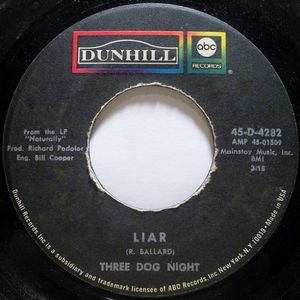 Mettler: One of your showcase songs, “Liar” [from 1970’s Naturally], has such key vocal moments all throughout, and you have to be able to get there to make the emotions feel authentic.
Mettler: One of your showcase songs, “Liar” [from 1970’s Naturally], has such key vocal moments all throughout, and you have to be able to get there to make the emotions feel authentic.
Hutton: Yeah. I consider myself an OK singer. Cory was a gifted singer; he was so fabulous. I think I’m a great harmony singer, which sounds funny. But as far as hitting really powerful high notes, I think of myself as a horn. I can hit really high, and it adds a brightness to the harmony triad.
Mettler: Is there a particular song in the live set you consider a highlight for you, harmony-wise?
Hutton: Probably “Never Been to Spain” [from 1971’s Harmony] — those choruses are in my sweet spot. I can see people in the audience watching us singing the lead and when we make the shift, “vooop!” — they turn and look at me, because I hit one of those notes that vibrate. It’s crazy.
And there’s a middle part on a new a capella song we do, “Prayer of the Children,” that does that too. Those are two magic moments where everything just connects.
Mettler: In the studio version of “Liar,” I really like the choice of the echo on the vocal in the beginning, which was recorded in an interesting place —
Hutton: Yeah, that’s the toilet. That’s the bathroom. All the old doo-wop guys used to do that — in the subways, or going into the bathroom to get that sound.
I was at the Whisky a Go Go [in Los Angeles] one night back in the old days, and Phil Spector came over and said, “Dan, I like that echo.” I thought that was a big compliment from the echo king.
Mettler: That’s like the seal of approval from the master.
Hutton: You don’t hear a lot of younger bands do harmonies like that anymore. A lot of it is the older bands came out of doo-wop, and they transitioned into something else, so everyone was schooled a little in harmony.
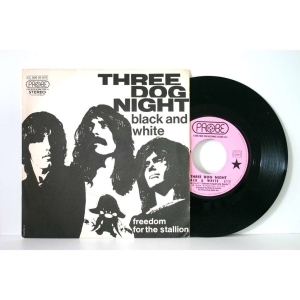 Mettler: Another song of yours I want to highlight is “Black and White” [from 1972’s Seven Separate Fools]. Doesn’t that seem as relevant as ever? Its subject matter continues to hit home with so many people.
Mettler: Another song of yours I want to highlight is “Black and White” [from 1972’s Seven Separate Fools]. Doesn’t that seem as relevant as ever? Its subject matter continues to hit home with so many people.
Hutton: Yeah, it sure does. The words are great. It was written [in 1954] by Earl Robinson and David I. Arkin, Alan Arkin’s father. Generally, I’ve always been a chorus guy and a melody guy. What hooked me first — I was at a hotel in Holland with Stevie Barnett, this amazing agent from the Bron Agency in England. He’s a good friend who ended up as the head of Sony and a manager for AC/DC [and is now currently CEO & Chairman of Capitol Music Group].
Anyway, I went into the room while the maid was fixing it and cleaning it up, and the TV had a radio on it. I was listening to this song where I thought, “Wow, what a great, hit chorus.” Then I found out what the song was called, went back home, waited for it to be a hit, and it wasn’t. It fell through the cracks, so I thought, “Well, we’re doing this one.”
Mettler: And then it became a #1 hit single for you [in 1972] — not a bad call at all! Let’s talk more about harmony. What was the first song you personally connected with when you were growing up?
Hutton: This is very crazy, but this must have been 1950 — The Firehouse Five Plus Two. It was Dixieland, “The World Is Waiting for the Sunrise.” I found out later it was all the cartoonists at the Disney Studios — Ward Kimball and those guys had a band. That’s the first thing I heard as a kid.
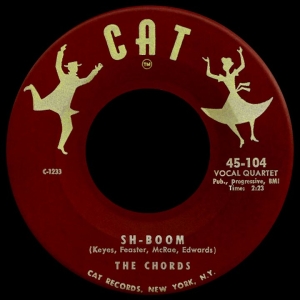 When I was in Boston, I remember the first thing I heard that knocked me out was “Sh-Boom (Life Could Be a Dream),” by The Chords (1954), and then The Diamonds covered it. And then Lavern Baker, and “Tweedlee Dee” (1954). There was a DJ called Symphony Sid who used to play all those records, and Howard Stern’s father [Ben Stern] was the engineer. That kind of started it.
When I was in Boston, I remember the first thing I heard that knocked me out was “Sh-Boom (Life Could Be a Dream),” by The Chords (1954), and then The Diamonds covered it. And then Lavern Baker, and “Tweedlee Dee” (1954). There was a DJ called Symphony Sid who used to play all those records, and Howard Stern’s father [Ben Stern] was the engineer. That kind of started it.
You’d know this, but most people don’t know “Rock Around the Clock” [by Bill Haley and His Comets] really started everything. I went to the Pantages Theatre [in Hollywood] to see Blackboard Jungle (1955). All around the world, that was probably the first time kids heard rock & roll on big speakers. It was a tough movie about some tough kids, and I knew about the riots all over the world. That just started everything.
And “Tutti Frutti,” by Little Richard (1955). But a guy who fell through the cracks over the years was Johnnie Ray. Do you remember Johnnie Ray?
Mettler: Oh yeah: “Poor old Johnnie Ray” — he’s the guy in the line from that Dexy’s Midnight Runners song, “Come on Eileen” (1982).
Hutton: Yeah, and he did “The Little White Cloud That Cried” (1951) and “Walkin’ My Baby Back Home” (1954). I think it was pre-Elvis. He had the hat and the suit, and he’d rip his clothes off, and his tie off — he was a real interesting guy. He bridged that ’40s performance stuff with rock & roll.
Mettler: All that and the doo-wop stuff and early rock & roll got into your DNA. You must have been an Everly Brothers fan too.
Hutton: “Wake Up Little Susie” (1957) — that rhythm guitar riff is amazing. I tried to cop that and couldn’t get it. I had to struggle with it. I was not the guy to lock himself in a room and play for hours and hours at that point. That was not my goal — to be a great guitar player. I used guitar to write. That was where I was always coming from.
I was like a studio rat. All the other guys would say, “Man, you didn’t pay your dues.” They all did the club scenes and lugged their equipment around and in vans and cars, traveling all around the country. I came from making records, and being in the studio.
Mettler: And I think that led to you guys being able to capture harmonies on the records so well. A lot of people couldn’t do that.
Hutton: Yeah, I knew about the studio. On some of my early records, we actually used some of the vocal things I did on some of our later records, like “Lady Samantha” [from 1969’s Suitable for Framing] — we have a swoop on the end of that song. And “One Man Band” [from 1970’s Naturally], we have a swoop that comes from the swoop I did on a record of mine called “Funny How Love Can Be” [a 1966 solo single].
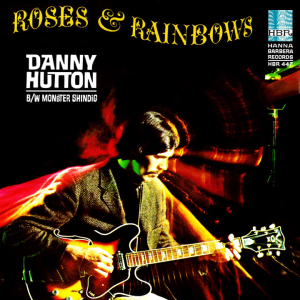 Mettler: That’s also the “Roses & Rainbows” era, still one of my favorites from your Hanna Barbera days in 1965. [Both “Funny” and “Roses” can be found at the beginning of Disc 1 on the TDN double-disc set Celebrate: The Three Dog Night Story – 1965-1975].
Mettler: That’s also the “Roses & Rainbows” era, still one of my favorites from your Hanna Barbera days in 1965. [Both “Funny” and “Roses” can be found at the beginning of Disc 1 on the TDN double-disc set Celebrate: The Three Dog Night Story – 1965-1975].
Hutton: That was a magic record. Sonically, it just worked really well. I had Earl Palmer, Little Richard’s drummer, on drums, and I’d make sure for all the fills on the outro chorus that he never did the same one twice. I love listening to the end, because you can hear him changing those fills. He just told me, “I’m so happy. This is the most fun I’ve had this week on sessions.” He didn’t have to just read; he got to do his own thing.
Billy Strange was on guitar, and so was Tommy Tedesco. Billy Strange came up with a great guitar-answer thing. It was a real magic session.
Mettler: I say Three Dog Night is about due for a big, fat box set from the Universal universe, where most of your catalog resides.
Hutton: Oh! We actually are discussing that, maybe adding some extra stuff and some deep album cuts. Uinversal is a good record company, so I think it’s just a matter of getting it done.
Mettler: Well, I’m a fan of “Our ‘B’ Side” [the actual B-side to “Shambala” in 1973], so I’m looking forward that. (Hutton laughs) Before we go, tell me a bit about the Crazy Horse days in Topanga Canyon.
Hutton: I was good friends with Crazy Horse, and Danny Whitten, we considered him the third singer. Bruce Johnston, Danny, Billy [Talbot], and Ralphie [Molina] were a doo-wop group first [Danny & The Memories]. Ralphie had a little corner house on Laurel, and they opened the garage door at 4 p.m., when all the people were coming home. Ralphie sat out there in a chair with two telephone books as the drums, learning how to play the drums. The had a mad Russian violin player [Bobby Notkoff, later of The Electric Flag]. And Neil [Young] ended up popping in and taking over the band. (laughs)
Neil was my neighbor — both he and Stephen [Stills], back in ’65, when I was on my own as a singer. Neil would always come over. He’s such a good songwriter. He’d sit on the couch and go, “What do you think?” Stephen was wonderful too. We were party animals. (chuckles)
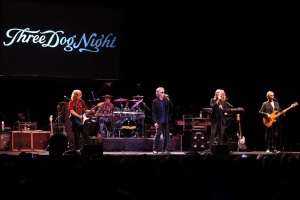 Mettler: To wrap things up with the sort of semi-obvious but possibly tough question — if you could summarize the legacy of Three Dog Night today, what would you say it is?
Mettler: To wrap things up with the sort of semi-obvious but possibly tough question — if you could summarize the legacy of Three Dog Night today, what would you say it is?
Hutton: We’re not rookies. (chuckles) Our audience would say, “Wow, what a tight, good band. What great singers. What great songs, with great melodies. They have a lot of fun onstage, and people leave with a big smile on their faces.” Good songs, good melodies. The guys who only go out there and only want to play the new stuff, and not the hits — that’s just not what we do.
Tags: Alice Cooper, An Old Fashioned Love Song, Art Laboe, Bill Haley, Black and White, Blackboard Jungle, Brian Wilson, Celebrate, Chuck Negron, Clearaudio, Cory Wells, Crazy Horse, Danny Hutton, Danny Whitten, Dash Hutton, Earl Palmer, Haim, Hanna Barbera Records, harmony, Harry Nilsson, Jimmy Greenspoon, John Lennon, Johnny Ray, Joy to the World, Laurel Canyon, Les Paul, Liar, Little Richard, Lou Pallo, Love & Mercy, Mama Told Me Not to Come, Michael Allsup, Micky Dolenz, Naturally, Neil Young, Never Been to Spain, One, Prayer of the Children, Ringo Starr, Rock Around the Clock, Roses & Raibows, Seven Separate Fools, Sh-Boom, Shambala, Souther linear tonearm, Stephen Stills, Suitable for Framing, The Beach Boys, The Beatles, The Everly Brothers, The Lost Weekend, Three Dog Night, Topanga Canyon, Tutti Frutti, Yoko Ono